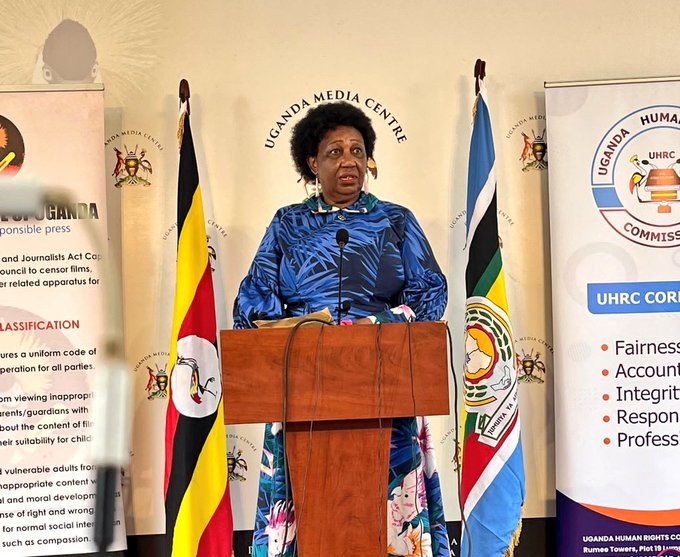Uganda Human Rights Commission (UHRC) Chairperson Mariam Wangadya has firmly denied claims that the Commission remained silent on abuses faced by journalists during the Kawempe North by-election.
Speaking at a press event at the Uganda Media Center on Monday, ahead of the World Press Freedom Day on May 03rd 2025, Wangadya said the UHRC had not only been active during the electoral process but had also taken public steps to address human rights violations, including the mistreatment of journalists by security forces.
Following the violence that marred the by-election, journalists reported being assaulted and harassed by security operatives. Some of them filed complaints with the UHRC, seeking redress.
Wangadya said the Commission had dispatched a team, led by an experienced election monitor, Commissioner Crispin Kaheru, to observe the election and its environment. Their findings were compiled into a report that was publicly released and covered by major media outlets.
“I am shocked to hear accusations of silence,” Wangadya said, noting that the Commission had been proactive in its engagements. She further revealed that the UHRC had convened a high-level meeting with heads of all security agencies in Uganda specifically to discuss human rights concerns arising from the Kawempe North election and other similar incidents.
She pointed out that the outcome of this meeting, including her official address to the heads of security, was made public and shared widely, including being published in the New Vision newspaper.
The UHRC maintains that it continues to monitor the situation and remains committed to protecting the rights of all citizens, including journalists, especially as Uganda heads into a sensitive political period leading up to the 2026 general elections.
During the Kawempe North by-election, several journalists covering the elections alleged that security forces harassed, assaulted, and obstructed them.
Journalists and media groups later filed formal complaints to the Uganda Human Rights Commission (UHRC), accusing security operatives of violence and rights violations.
Wangadya emphasized that a free and independent press remains critical for strengthening democracy, she has urged all stakeholders to protect journalists’ ability to operate without fear or interference.
Wangadya noted that as Uganda approaches the 2026 elections, defending press freedom is more urgent than ever, highlighting the need for collective action against polarization and misinformation.




